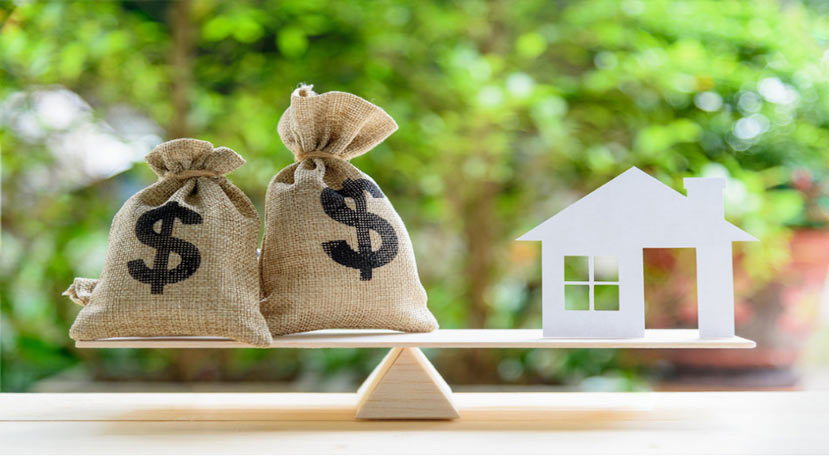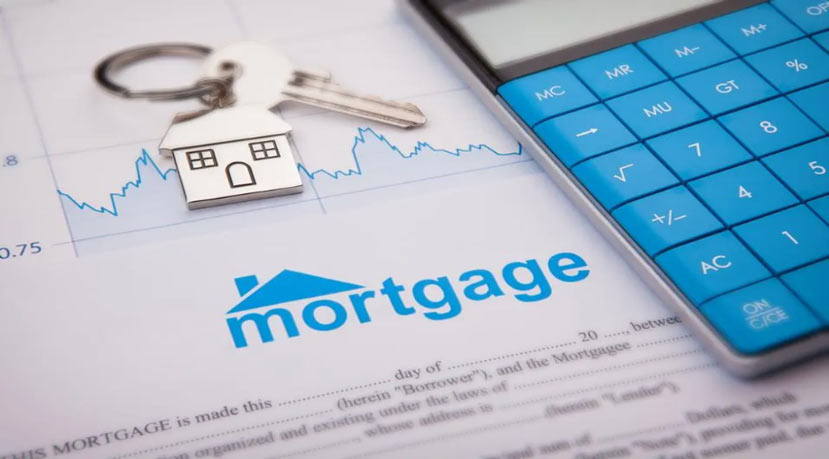Are you looking for ways to pay off your mortgage quickly? This is a common goal shared by many homeowners. But it can be tricky to know how to make the most of your finances and find the right strategy that fits within your budget.
Thankfully, some simple tips can help you repay your home loan in as little as five years. From getting a second job to implementing an extra payment plan, this blog post will provide real-world advice on reaching financial freedom even sooner than expected!
Actionable Ways To Pay Off Your Mortgage In 5 Years
Make an Extra Payment
You can significantly reduce your mortgage amount and interest by making extra yearly payments. This strategy is effective for those wanting to pay off their mortgage in five years or less, as it helps reduce the total loan repayment period.
To make an extra payment, you must first set up a budget and determine how much extra money you can allocate each month toward your mortgage. Once you have that figured out, contact your lender to discuss setting up a payment schedule. You can apply payments more frequently than monthly, such as bi-weekly or weekly, if that works better for your finances.
Refinance Your Mortgage
Refinancing to a lower rate could save thousands of dollars in interest over the loan’s life span.
Take Advantage of Tax Breaks
Depending on where you live, tax breaks may be available for those paying off their mortgages early. Talk to a financial advisor to learn more about potential tax savings associated with accelerated payments.
Get a Second Job or Side Hustle
Earning additional income is one way to quickly pay down debt and increase your monthly cash flow toward your mortgage payment.
Cut Unnecessary Expenses
If you want to pay off your mortgage early, it may be a good time to review your budget and cut unnecessary expenses. Look closely at your spending habits and determine where to save money. This could include reducing or eliminating your cable package, eating out less often, or skipping that daily latte.
You should also consider setting up an emergency fund as well. While you want to pay off your mortgage early, it’s still important to have some financial cushion in case of unexpected expenses. Set aside money monthly into a savings account so that if something does come up, you have funds readily available without relying on credit cards.
Make Bi-Weekly Payments
Setting up bi-weekly rather than monthly payments will result in an additional payment each year, reducing the interest accrued over time and the loan balance.
Utilize Windfalls or Bonuses
If you receive any windfalls like a tax refund or bonus from work, put that money straight toward your mortgage principal.
Use Low Balance Transfer Rates
If available, look into using low balance transfer rates to help manage debt associated with your home loan and pay it off faster.
Save Your Raises for Additional Payments
If you get a raise at work, instead of using the extra money to buy extras or go on vacation, put that toward your mortgage payment.
Round Up Each Payment
Consider rounding up each payment to the nearest one-hundred-dollar increment monthly to make an extra dent in your loan balance over time.
Using a Home Equity Line of Credit (HELOC)
A HELOC is a great way to borrow against the equity in your home and potentially save on interest payments and quickly pay down debt. This type of financing can help you pay off your mortgage faster and is often combined with other strategies. It's important to understand that while a HELOC can provide access to funds, it also carries some risks if not managed properly.
When considering a HELOC, you must consider the loan's interest rate and how much you can borrow based on the equity in your home. Generally, most lenders offer variable rates between 4-7% depending on credit score and current market conditions. Additionally, homeowners can borrow up to 90% of their home's value minus any existing liens or mortgages.
Make One-Time Lump Sum Payments
Make lump sum payments when you have extra funds to reduce your loan balance and repay your mortgage faster.
Talk to Your Mortgage Lender
Contact your lender for guidance on paying off your mortgage early. They can suggest a tailored plan that works best for you.
Utilize Tax Refunds
Put any refund money received from taxes towards your mortgage payments.
Create an Automatic Payment Plan
Set up automatic payments so you don’t have to worry about forgetting or being late every month.
Use Your IRA Funds
If you own an Individual Retirement Account (IRA), consider using the funds to pay off debt associated with your home loan to reduce interest charges and make bigger payments quickly.
Pay More Than Required Each Month
Pay more than the minimum amount due each month to reduce the principal balance and shrink the loan duration.
Consider an Interest-Only Mortgage
An interest-only mortgage allows you to pay just the interest for a certain period, thus freeing up more monthly money that can be applied towards other debt or investments. Interest-only mortgages are a great idea for those with the financial means to pay off their loan early, as they will save on interest costs.
When taking out an interest-only mortgage, it’s important to understand that you won’t build any equity in your home until after the initial period has ended and the principal payments begin. During this time, you should use the extra money saved on interest to put into savings or investments to offset any potential losses from not building equity.
Research Short-Term Loans
Look into low-interest short-term loans if you need additional funds to help pay off your mortgage quickly.
Seek Professional Advice
Seeking professional financial advice is always recommended when making big decisions, such as paying down debt faster than necessary. Understanding all options before committing too much of your finances is important to ensure you're on track to reach your goals.
FAQs
Q. Should I make an extra principal-only payment each month?
A. Making an extra principal-only monthly payment is a great way to reduce the time it takes to pay off your loan. This strategy works best if you can make the extra payments consistently throughout the year. Additionally, it's important to research if your loan has any prepayment penalties so you only pay what you must.
Q. Is refinancing a good option for paying off my mortgage faster?
A. Refinancing is an effective strategy for reducing your interest rate and monthly payments. Getting a lower rate can help save money over the long run and reduce the time needed for repayment. However, it's important to research different lenders thoroughly before committing to find a loan with low closing costs and competitive rates that fit within your budget.
Q. Are there any other ways I can pay off my mortgage faster?
A. Finding additional income streams is a great way to help accelerate your debt repayment. Consider options such as getting a second job, freelancing, or renting out extra space in your home. Additionally, creating and sticking to a budget will help you find more monthly money to put toward your mortgage. With dedication and careful planning, you can reach financial freedom even sooner than expected!
Conclusion
Paying off a mortgage in five years or less is achievable with the right strategy. From extra payments to refinancing and budgeting, there are multiple ways to reach financial freedom even sooner than expected. With dedication and careful planning, you can get on track to reaching your goal of being debt-free faster than ever!





